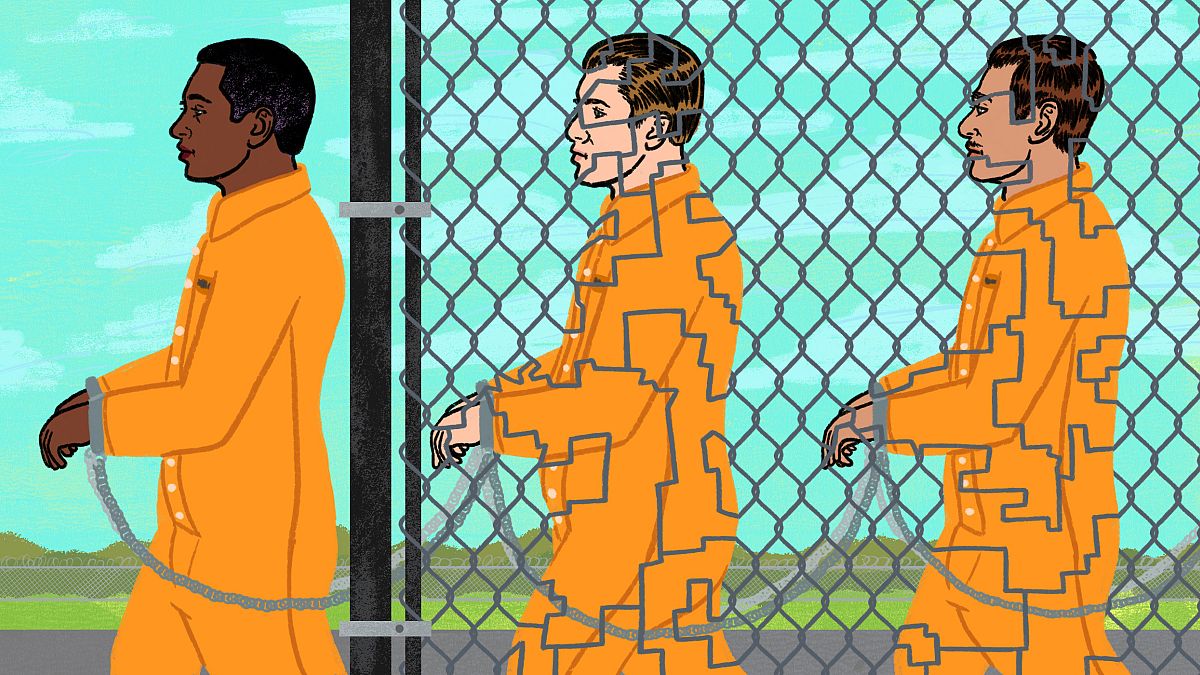Many lawmakers say the way prisoners are counted in redistricting violates the constitutional principle of one person, one vote.
Prisoners count. But where? That's a question state lawmakers across the country are grappling with as the 2020 census approaches.
Washington Gov. Jay Inslee, a 2020 Democratic presidential candidate, signed a billTuesday to make his state the latest to require that prisoners be counted at their pre-incarceration addresses instead of where they're serving time.
That legislation is important, advocates of the change say, because the Census Bureau currently counts prisoners as residents of the places where they're imprisoned, and states use the census data to draw up their legislative maps.
But because the majority of America's more than 2 million inmates are imprisoned temporarily and can't vote while in jail, the counting method can unconstitutionally inflate the voting power of residents in the legislative districts where prisons are located while diluting it everywhere else, the advocates say. That's especially a problem in sparsely populated areas with large prisons, they say.
While a significant number of prisons are located in comparatively rural areas that trend Republican and are predominantly white, prisoners tend to hail from urban, often Democratic communities and are disproportionately minorities, according to several think tanks and criminal justice experts interviewed by NBC News.
Advocates of change, including many Democrats, say it's unfair to count prisoners as residents of communities whose demographic makeup and needs differ from the places the inmates would call home. They say inflating the voting power of residents in prison-hosting districts violates the constitutional principle of one person, one vote.
But supporters of the status quo, including many Republicans, say prisoners should be counted where they're incarcerated, both because of longstanding tradition and because census data is used to distribute government funds, so communities that contain prisons should be given appropriate funding for services they provide. They characterize efforts to overhaul the counting method as a partisan move that would largely benefit Democrats.
The bills that passed in Washington and several other states focus exclusively on counting prison populations as residents of their pre-incarceration addresses during legislative redistricting after each census; they don't mention funding, leaving those decisions an entirely separate consideration.
To the sponsor of the bill in Washington, Democratic state Sen. Jeannie Darneille, addressing the legislative redistricting issue is a question of basic fairness.
#embed-20190515-prisons-gerrymandering-rural-area iframe {width: 1px;min-width: 100%}
African Americans and other minorities have been unjustly undercounted since the census began, Darneille said. The "counting of inmates at the facilities where they are detained is a continuation of this tragic tradition, especially in the era of mass incarceration," she added.
Since the first census in 1790, the Census Bureau has counted people based on the concept of "usual residence,"defined as the place where they live and sleep most of the time, which for prisoners means where they're imprisoned.
Oliver Hinds, a senior data scientist at the Vera Institute of Justice, said that counting method can distort population estimates from one district to another. While a significant number of prisons are located in rural areas, he said, "our best estimates indicate that only 15 percent of the prison population comes from" such areas.
In reviewing its rules for the upcoming census, the Census Bureau receivednearly 78,000 comments, including those from former heads of the agency, civil rights groups and elected officials, almost all of which urged it to count prisoners at their home addresses.
The bureau, however, decided not to change its method of counting prisoners, instead providing states with an address-locating tool meant to help them do so.
Other efforts to address the issue at the federal level have not beenmet with success. Rep. Mark Pocan, D-Wis., included an amendmentto end prison gerrymandering in asweeping overhaulof voting, campaign finance and ethics laws that passed the chamber in March. But the bill will not advance in the Republican-controlled Senate.
Majority Leader Mitch McConnell, R-Ky., called the broader legislation a partisan exercise in government overreach that would abrogate free speech and waste tax money.
A separate bill similarto Pocan's amendment, introduced by Rep. William Lacy Clay, D-Mo., is also unlikely to advance.
#embed-20190515-prisons-gerrymandering-state-law iframe {width: 1px;min-width: 100%}
State action
Absent federal action, New York, Maryland, Delaware and California have passed measures like Washington's, and several other states are considering legislation.
In New Jersey, a bill to end prison gerrymandering passed the Democratic-controlled Senate by a largely party-line vote in February but has not been taken up by the Democrat-led General Assembly.
"This bill will ensure the voices in our communities are not diminished because their residents are serving time," Democratic Sen. Nilsa Cruz-Perez, a sponsor of the bill, told NBC News.
The only Republican to vote for the measure, state Senate Minority Whip Joseph Pennacchio, said it seemed "unnatural" to count prisoners where they're incarcerated given that their jail terms are usually temporary and they're likely to return to their previous communities once released.
In vetoing an earlier bill to address the issue, then-Republican Gov. Chris Christie echoed others opposed to changes, saying the measure ran counter to the Census Bureau's longstanding practice and claiming it made "little sense insofar as prisoners are consuming services and resources at the prison and may have only fleeting, dated, or tenuous ties to their prior residence."
The bill, he added, "smacks of political opportunism, as evidenced by the party-line votes by which it passed both houses of the Legislature."
Elsewhere, the NAACP filed a lawsuit last year to end prison gerrymandering in Connecticut after several attempts to address the issue legislativelyover the last decade failed.
The lawsuit, which comes amid several otherscharging partisan or racial gerrymandering around the nation, claims that prison gerrymandering has distorted populations in several legislative districts, raising constitutional concerns.
The president of the NAACP's Connecticut chapter, Scot X. Esdaile, said he thinks it's unfair that two state senators may have the same amount of legislative power despite one representing just a fraction of the people in his or her district. He blamed the failure of legislation to address the issue on "very powerful individuals" — both Democrats and Republicans — with prisons in their districts.
#embed-20190520-prisons-gerrymandering-ct-prisoners iframe {width: 1px;min-width: 100%}
"It's a farce, smoke and mirrors," Esdaile said. "They should be ashamed of themselves of how they're robbing the people for political gain."
#embed-20190520-prisons-gerrymandering-ct-prisoners-live-before iframe {width: 1px;min-width: 100%}
In Illinois, where Democrats also control both chambers of the state legislature, state Democratic Rep. La Shawn Ford has reintroduced a bill to end prison gerrymandering, which passed the House several years agobut has never been taken up by the Senate.
Ford said he thinks the issue is more territorial than partisan, noting that a handful of Democratic politicians in his state who represent districts with large prison populations have been silent on the issue.
Rural communities already benefit enough from prisons, which bring jobs and infrastructure, Ford said.
"There's no reason to take away individual's right to be counted in their home territory," he said.


